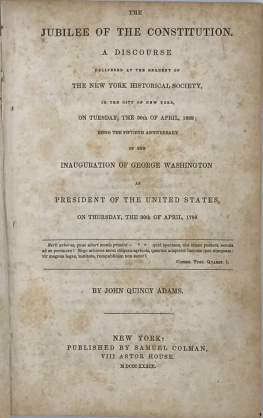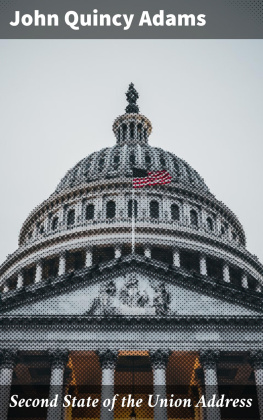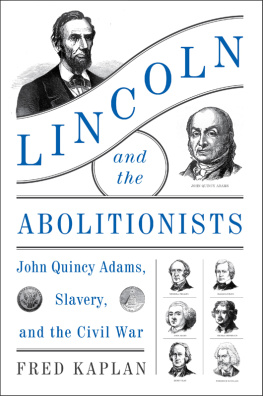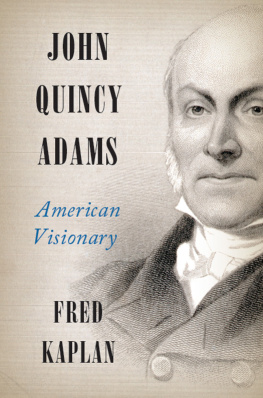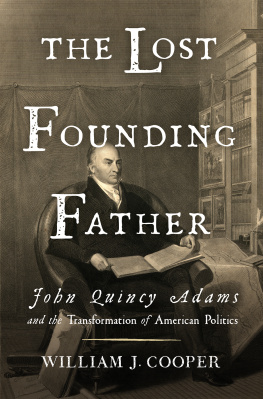William Earl Weeks - John Quincy Adams and American Global Empire
Here you can read online William Earl Weeks - John Quincy Adams and American Global Empire full text of the book (entire story) in english for free. Download pdf and epub, get meaning, cover and reviews about this ebook. year: 2021, publisher: The University Press of Kentucky, genre: History. Description of the work, (preface) as well as reviews are available. Best literature library LitArk.com created for fans of good reading and offers a wide selection of genres:
Romance novel
Science fiction
Adventure
Detective
Science
History
Home and family
Prose
Art
Politics
Computer
Non-fiction
Religion
Business
Children
Humor
Choose a favorite category and find really read worthwhile books. Enjoy immersion in the world of imagination, feel the emotions of the characters or learn something new for yourself, make an fascinating discovery.

- Book:John Quincy Adams and American Global Empire
- Author:
- Publisher:The University Press of Kentucky
- Genre:
- Year:2021
- Rating:3 / 5
- Favourites:Add to favourites
- Your mark:
- 60
- 1
- 2
- 3
- 4
- 5
John Quincy Adams and American Global Empire: summary, description and annotation
We offer to read an annotation, description, summary or preface (depends on what the author of the book "John Quincy Adams and American Global Empire" wrote himself). If you haven't found the necessary information about the book — write in the comments, we will try to find it.
John Quincy Adams and American Global Empire — read online for free the complete book (whole text) full work
Below is the text of the book, divided by pages. System saving the place of the last page read, allows you to conveniently read the book "John Quincy Adams and American Global Empire" online for free, without having to search again every time where you left off. Put a bookmark, and you can go to the page where you finished reading at any time.
Font size:
Interval:
Bookmark:

and
American Global Empire

serving Bellarmine University, Berea College, Centre
College of Kentucky, Eastern Kentucky University,
The Filson Historical Society, Georgetown College,
Kentucky Historical Society, Kentucky State University,
Morehead State University, Murray State University,
Northern Kentucky University, Transylvania University,
University of Kentucky, University of Louisville,
and Western Kentucky University.
All rights reserved.
663 South Limestone Street, Lexington, Kentucky 40508-4008
John Quincy Adams and American global empire / William Earl Weeks.
p. cm.
Includes bibliographical references and index.
Includes bibliographical references and index.
ISBN 0-8131-1779-8 (cloth: alk. paper)
ISBN 0-8131-9058-4 (pbk.: alk. paper)
1. FloridaHistoryCession to the United States, 1819.
2. Spain. Treaties, etc. United States, 1819 Feb. 22. 3. Adams,
John Quincy, 1767-1848. 4. United StatesForeign relationsSpain.
5. SpainForeign relationsUnited States. I. Title.
F314.W44 1992
973.5'5'092dc20 91-39022
the requirements of the American National Standard
for Permanence of Paper for Printed Library Materials.

Professor Armin Rappaport

Font size:
Interval:
Bookmark:
Similar books «John Quincy Adams and American Global Empire»
Look at similar books to John Quincy Adams and American Global Empire. We have selected literature similar in name and meaning in the hope of providing readers with more options to find new, interesting, not yet read works.
Discussion, reviews of the book John Quincy Adams and American Global Empire and just readers' own opinions. Leave your comments, write what you think about the work, its meaning or the main characters. Specify what exactly you liked and what you didn't like, and why you think so.

